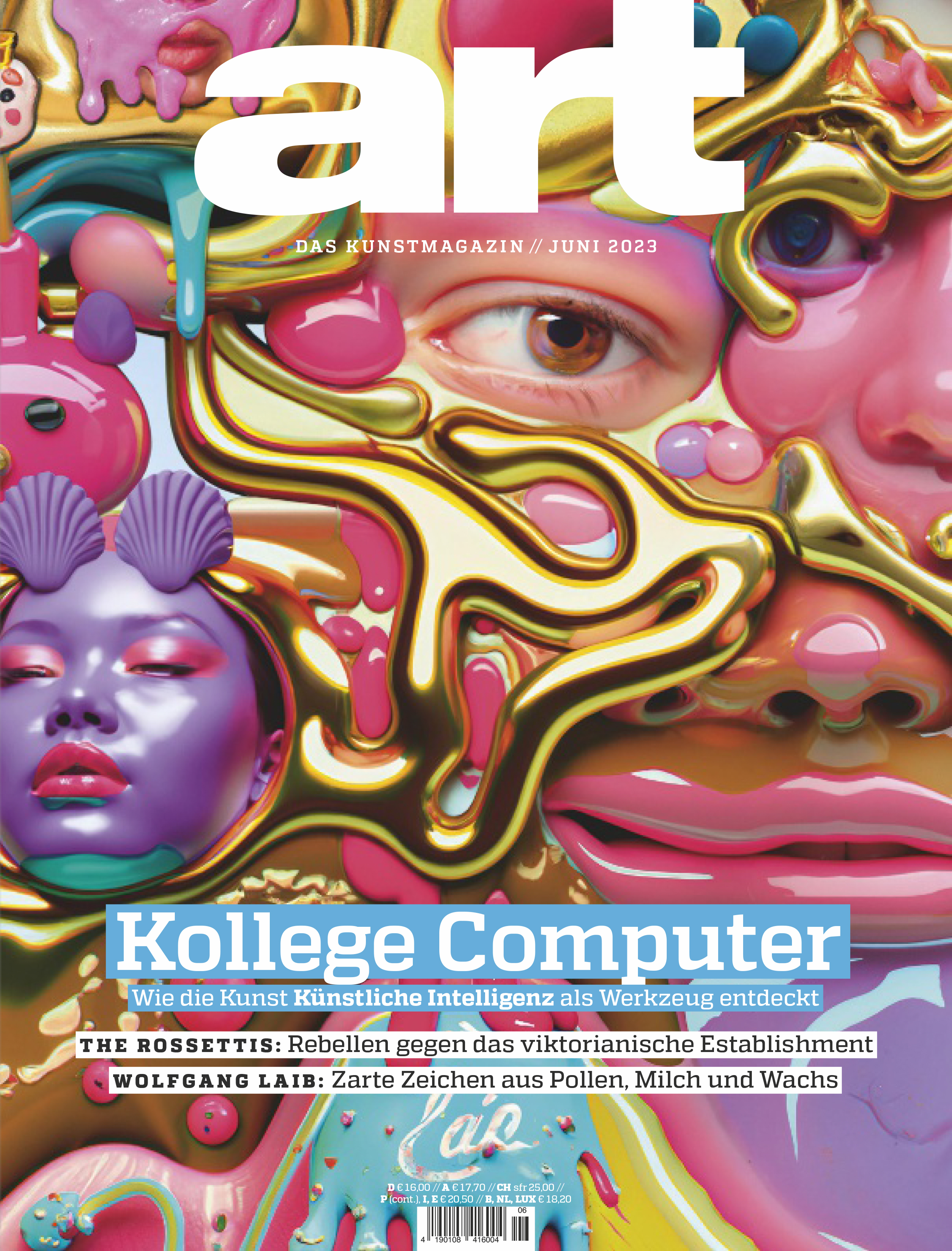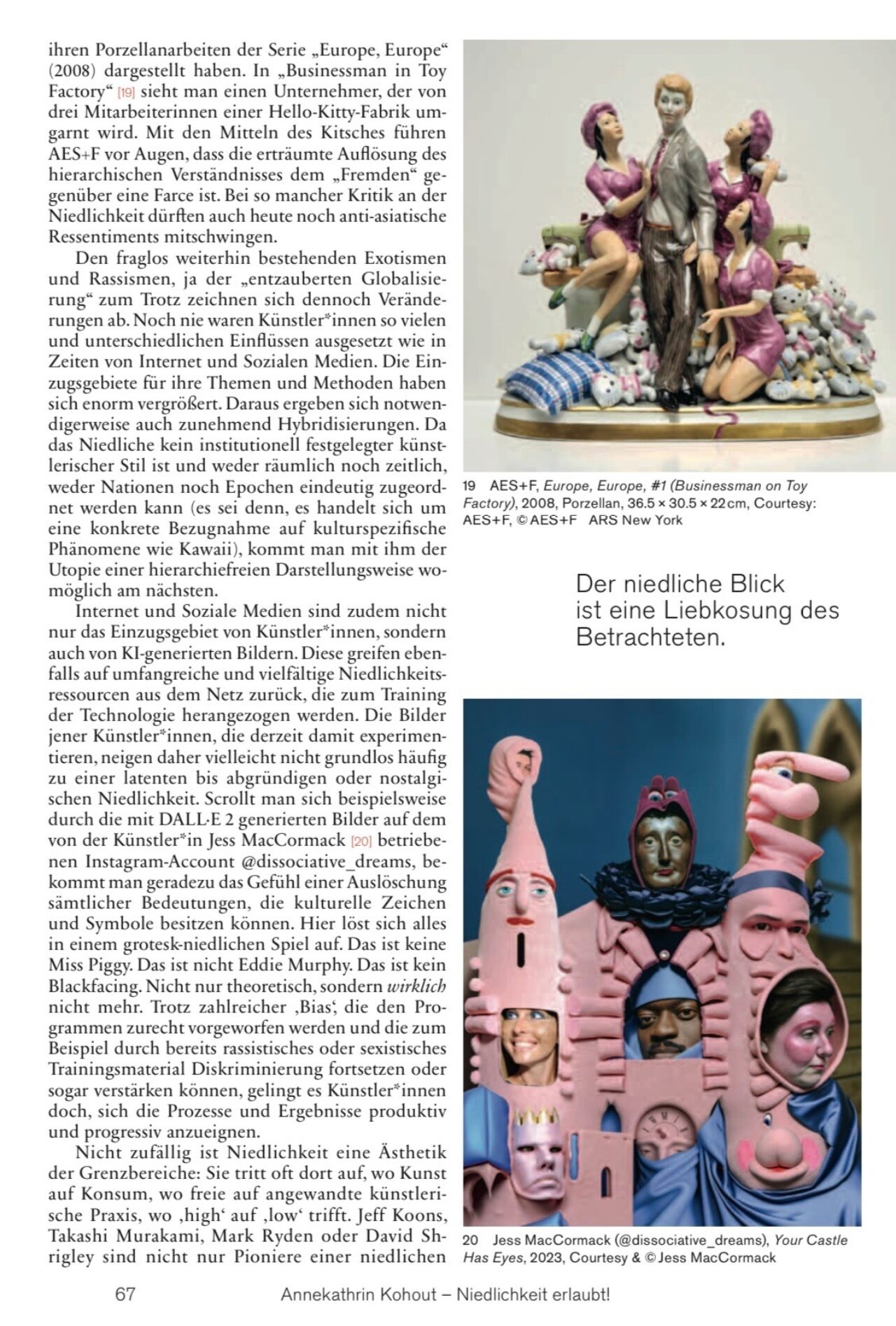News
Jess MacCormack Artwork Featured on Cover of ‘art magazine’

An artwork by Jess MacCormack created using artificial intelligence (AI) was recently featured on the cover of German publication art magazine. (Image courtesy Jess MacCormack)
Posted on July 20, 2023
The image is one of a pair by the artist and ECU faculty member featured recently in international publications.
An AI-generated artwork by artist and ECU faculty member Jess MacCormack was recently featured on the cover of German publication art magazine.
A second image, also created using AI, was featured in KunstForum International in an article on cuteness.
Created with AI generation platform Dalle 2, both works “explore the effects of dissociation and trauma as a queer person,” Jess tells me via email.
“Generating AI images through natural text prompts and image extension mechanisms creates complex, uncanny, neo-surreal images that can shift artistic styles seamlessly,” Jess says. “As AI tools train on millions of images, there are endless, unpredictable possibilities of aesthetics and content. This allows for a queering of the imagery where bodies easily morph one into another, or into animals or objects – undoing normative representations of gender, kinship and embodiment with ease; and simultaneously illustrating the dissociated affect inherent in both mediated relations and traumatized individuals.”
The image in KunstForum International is one of a series of “castle drag” images, they continue. This series illustrates “imaginary worlds that contain multiple people/faces hiding and peeking out at the world.” Jess calls the work “a nod to living with dissociative identity disorder.”

An artwork by Jess (bottom right) in KunstForum International in an article on cuteness. (Image courtesy Jess MacCormack)
They note that numerous challenges exist for artists working with AI. For example, because AIs are trained on public image archives, systemic biases are embedded in their algorithms. Meanwhile, content that deals with subjects such as disease, violence and sexuality is often blocked by filters.
But Jess says these challenges offer an analogue to the histories with which they engage in their practice.
“Trying to work around these limitations and find new ways to express these subjects is similar to the emergence of repressed trauma, or to queer culture for that matter,” they say. “Despite barrier mechanisms, these buried themes find subversive ways to express themselves.”
Jess will begin their PhD studies in contemporary art at Simon Fraser University in the fall. They are currently showing in an exhibition in Singapore, and have an upcoming show in Paris.
Jess’ graphic novel, SHAME SHAME, go away, explores themes including childhood trauma and dissociative identity disorder. You can find SHAME SHAME in the ECU Library.
Visit Jess’ website to learn more about their work.
